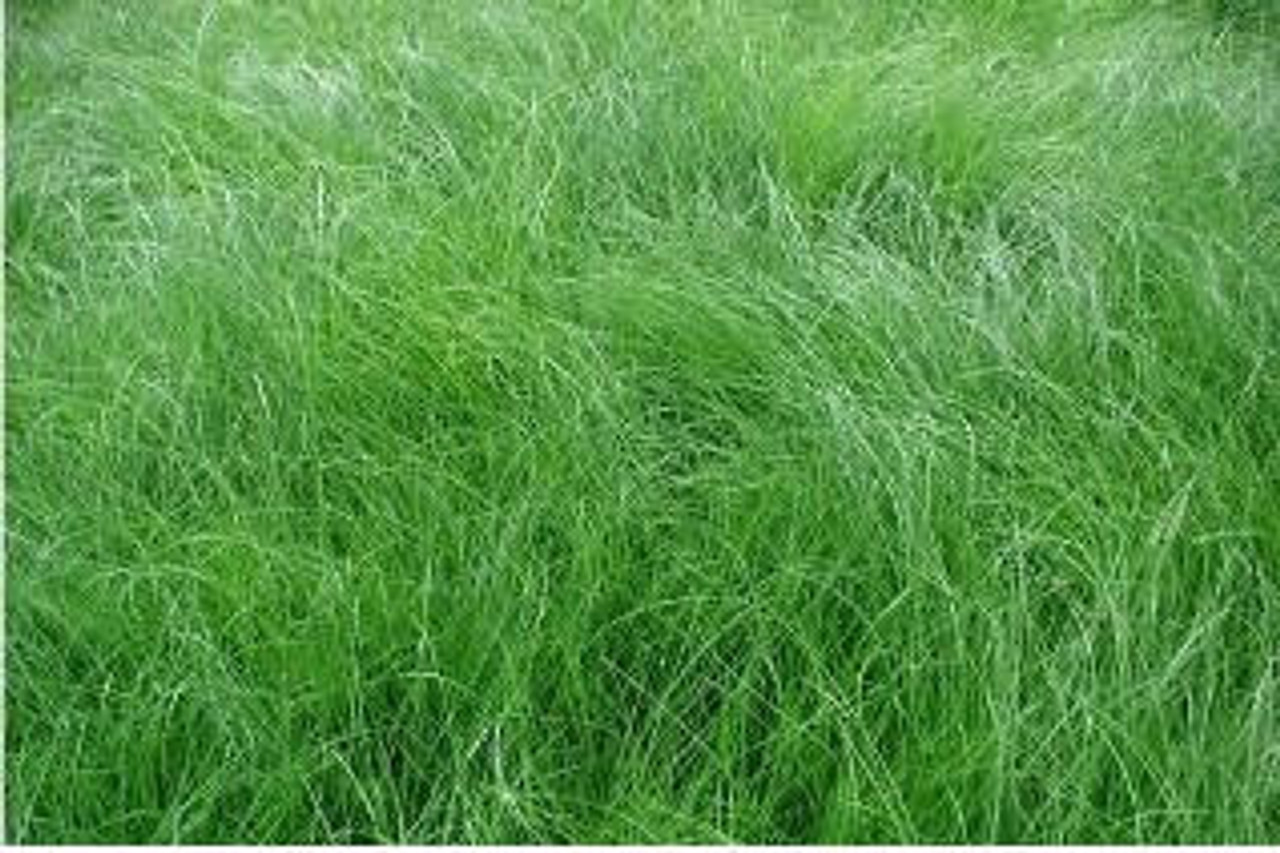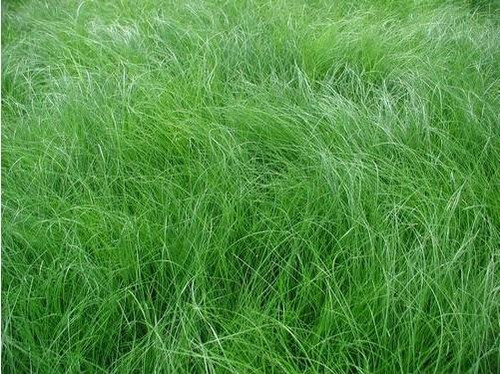Product Description
Carex appalachica (3.5-inch pot)
Common name: Sedge - Appalachica Sedge
- Height: 6-8 Inches
- Spread: 12-18 Inches
- Hardiness Zone: 3 - 8
- Shade to Part Shade
- Evergreen in warm climates
- Native to Eastern U.S.
- Clumping habit -spreads slowly
- A good shade lawn substitute
- Bloom brown and insignificant - late Spring
- Excellent ground cover for dry shade
Carex appalachica - Appalachian Sedge - Very fine, dark green, weeping blades, 12" long. Evergreen in warmer climates. Appalachian Sedge is a native to the Eastern U.S. Clumping nature-spreading slowly- makes it suitable for borders. A good ground cover in dry shade. White inflorescences in late Spring are followed by seed heads. Carex appalachica will grow in average, dry soil. Prefers medium to dry soil. Will tolerate drying out with regular watering. Use for ground cover, mass plantings, naturalizing, erosion control on slopes, borders, lawn substitute in dry shade and woodland areas. Natural habitat - often found growing under oak trees. Mature Height 6"-8", spread 12"-18".
Choose a location that receives partial to full shade. Appalachian sedge can tolerate full sun, but it will do best in shady areas. Plant in well-drained soil. Appalachian sedge is tolerant of dry soil, but it will not do well in wet or soggy soil. Space the plants 10-12 inches apart. Appalachian sedge will spread over time, so it is important to space the plants appropriately.
Water regularly during the first year after planting. Once the plants are established, they are drought-tolerant and only need to be watered during dry periods. Fertilize in spring with a balanced fertilizer. Appalachian sedge does not require a lot of fertilizer, but a light application in spring will help to promote new growth. Cut back the plants in late winter. This will help to keep them tidy and encourage new growth. With proper care, Carex appalachica will thrive in your garden for many years to come.
Appalachian sedge is a host plant for Skipper and Satyr caterpillars, so if you are interested in attracting butterflies to your garden, this is a good plant to choose. Carex appalachica is deer-resistant, so it is a good choice for gardens where deer are a problem. This sedge is also tolerant of salt, so it can be used in coastal gardens.
Carex appalachica, also known as Appalachian Sedge, is a delicate and versatile sedge that thrives in dry shade. Here is a closer look at this valuable native plant:
Appearance:
- Foliage: Appalachian Sedge forms attractive clumps of fine-textured, bright green leaves. The leaves are narrow and arching, creating a graceful, grass-like appearance.
- Flowers: In late spring, it produces subtle, brown flower spikes that rise above the foliage. While not showy, the flowers provide food for native insects and birds.
Growth Habit:
- This sedge typically grows about 10-12 inches tall and forms a neat, mounding clump. It spreads slowly by rhizomes, gradually forming a dense ground cover.
Growing Conditions:
- Sunlight: Appalachian Sedge thrives in partial to full shade. It is an excellent choice for those difficult dry shade areas where other plants struggle.
- Soil: This sedge prefers well-drained soil and is quite adaptable to various soil types. It can tolerate dry conditions, making it a valuable asset in water-wise gardens.
- Moisture: While it prefers well-drained soil, it can tolerate occasional periods of drought once established.
- Hardiness: Appalachian Sedge is hardy in USDA Zones 3-7, making it suitable for a wide range of climates.
Special Features:
- Native Plant: As a native plant, Appalachian Sedge supports local ecosystems by providing food and habitat for native insects, birds, and other wildlife.
- Dry Shade Tolerance: Its ability to thrive in dry shade makes it a valuable asset for gardeners facing challenging growing conditions.
- Fine Texture: The fine texture of its foliage contrasts beautifully with broader-leaved plants, adding visual interest to the garden.
- Low Maintenance: Once established, Appalachian Sedge is a low-maintenance plant, requiring minimal care.
- Deer Resistant: Deer tend to avoid this sedge, making it a good choice for gardens where deer are a problem.
Uses in the Garden:
- Ground Cover: Appalachian Sedge is an excellent ground cover for shady areas, providing a dense, weed-suppressing mat.
- Woodland Gardens: It is a natural fit for woodland gardens, blending beautifully with other shade-loving native plants.
- Rock Gardens: Its drought tolerance makes it suitable for rock gardens, adding a touch of soft texture to the hard edges.
- Borders: It can be used to edge borders or pathways, creating a delicate and natural-looking border.
- Erosion Control: Its spreading habit helps to stabilize slopes and prevent erosion.
- Living Mulch: Appalachian Sedge can be used as a living mulch around trees and shrubs, helping to retain moisture and suppress weeds.
Tips for Growing Carex appalachica:
- Planting: Plant in spring or fall in a shaded location with well-drained soil. Amend the soil with compost or other organic matter to improve its fertility and drainage.
- Watering: Water regularly during the first year to help the plant establish a strong root system. Once established, it is relatively drought-tolerant but will benefit from occasional watering during dry spells.
- Fertilizing: Appalachian Sedge does not require heavy fertilization. A light application of a balanced fertilizer in spring is usually sufficient.
- Dividing: Divide clumps every few years in spring or fall to rejuvenate plants and maintain their vigor.
Overall, Carex appalachica, or Appalachian Sedge, is a valuable and versatile native plant that offers many benefits for the shade garden. Its fine texture, drought tolerance, and low maintenance requirements make it an excellent choice for gardeners seeking a beautiful and sustainable ground cover.
Other Details
The most important part of the plant is its root system. Healthy roots are the foundation of a healthy, vibrant plant. The type of plug container used is based on the specific needs of the plants. Perennials offered as bare root traditionally perform better when planted as bare root.Planted in a specialized mix, potted plants have well established root systems. Top growth stage will vary depending on the current life cycle and time of year when shipped. In Winter and early Spring dormant plants may be shipped. Dormant plants may be planted right away, even before the last frost date.
Most bare root varieties are field grown for at least one season, though Hemerocallis and Hosta are grown for two seasons. The bulk of the soil is removed during the harvesting process and the tops of most varieties are trimmed back to the crown. They are graded, packed in shredded aspen or sphagnum moss and stored in freezers until ready to be shipped.
See our Container Sizes and Bare Root Perennials pages for more information.
Plant information and care is provided in the Overview section, Plant Genus Page and general information is provided in the Planting Care & Guides. Additional questions can be asked on each Plant page.
Plant Spacing: Using the maximum mature spread or width of a plant to guide spacing, ensures space to grow to full size. To fill an area sooner, plant them closer together. Just remember, future thinning or transplanting may be needed.
Water: Keep a close eye on newly planted perennials, especially throughout the first growing year. Most early plant loss is due to too much or too little water!
Product Videos
Custom Field
Product Reviews
2 Reviews Hide Reviews Show Reviews
-
Carex Appalachia
Plants arrived on schedule and were all beautiful specimens.
-
Plants
All plants arrived healthy,moist, and packaged with care











